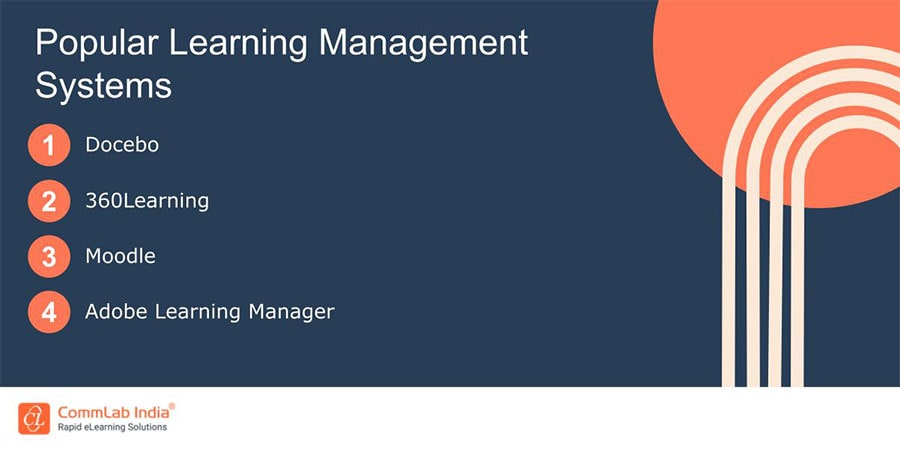9 Key Benefits of Cloud-Based LMS for Effective Course Management

In the ever-evolving landscape of training, technology continues to play a pivotal role in reshaping traditional learning methods. Cloud-based Learning Management Systems (LMS) have emerged as a game-changer, providing a dynamic and efficient platform for course management. In this blog, we will delve into the 9 key benefits that make cloud-based LMS an indispensable tool for trainers, organizations, and learners alike.
Looking for Effective Course Management? Try Cloud-Based LMS Platforms!
Here are a few benefits of them -
- Accessibility anytime, anywhere
- Cost-efficiency and scalability
- Centralized data management
- Enhanced security measures
- Real-time analytics and reporting
Understanding the Need for Cloud-Based LMS Platforms
Cloud-based LMS represents a revolutionary shift in how courses are managed and delivered. Unlike traditional LMS, which often requires a software application and entails higher maintenance costs, cloud-based LMS leverages the power of the online cloud servers to provide a flexible, scalable, and cost-effective solution. These platforms allow users to access training resources, assignments, and collaborative tools from anywhere with an internet connection, fostering a dynamic and inclusive learning environment. Here are a few popular LMS platforms right now.

With features like seamless collaboration tools, automatic updates, centralized data management, and robust security measures, cloud-based LMS platforms are designed to enhance the overall learning experience. Additionally, the customization options, real-time analytics, and integration capabilities make these platforms adaptable to the diverse needs of trainers and learners. As the training landscape continues to evolve, understanding and embracing the capabilities of cloud-based LMS platforms is pivotal for staying at the forefront of effective and efficient course management.
9 Key Benefits of Cloud-Based LMS for Effective Course Management
1. Accessibility Anytime, Anywhere
One of the primary advantages of cloud-based LMS is the unparalleled accessibility it offers. Traditional learning management systems often confined users to a specific location, hindering the flexibility required in today's fast-paced world. Cloud-based LMS breaks these barriers, enabling users to access course materials, assignments, and collaborative tools anytime, anywhere, as long as they have an internet connection. This accessibility empowers learners to tailor their learning experience to their unique schedules and preferences.
→ Download Infographic Now: Why Do You Need an Extended Enterprise LMS?
2. Cost-Efficiency and Scalability
Cloud-based LMS eliminates the need for expensive infrastructure and maintenance costs associated with traditional systems. Organizations can benefit from a pay-as-you-go model, only paying for the resources they use. This scalability is particularly advantageous for global organizations with fluctuating numbers of users or those looking to expand their offerings. As the demand for digital learning courses grows, the system can seamlessly scale to accommodate more users without incurring significant additional costs.
3. Seamless Collaboration and Communication
Effective communication and collaboration are crucial components of a successful learning environment. Cloud-based LMS provides a plethora of collaborative tools, such as discussion forums, real-time messaging, and group activities. These features foster a sense of community among learners, encouraging the exchange of ideas and the development of critical thinking skills. Trainers can also use these tools to provide instant feedback, enhancing the overall learning experience. Here are a few collaboration tools that are popular nowadays.

4. Centralized Data Management
Managing course-related data can be a daunting task, especially for businesses dealing with a large volume of information. Cloud-based LMS centralizes data management, making it easier for administrators and trainers to organize, store, and retrieve data efficiently. This centralized approach ensures data consistency, reduces the risk of errors, and simplifies the overall course management process.
5. Automatic Updates and Maintenance
In a rapidly evolving digital landscape, staying up-to-date with the latest features, security patches, and enhancements is critical. Cloud-based LMS providers handle these updates and maintenance tasks automatically, ensuring that the system is always running on the latest version. This not only saves time and effort for administrators but also enhances the overall security and performance of the LMS.
6. Enhanced Security Measures
Data security is a paramount concern in the training sector, where sensitive information, including learner records and assessments, is stored online. Cloud-based LMS providers implement robust security measures, including encryption, firewalls, and regular security audits, to safeguard against data breaches. This level of security is often superior to what individual organizations can achieve on their own, providing peace of mind to both trainers and learners.
7. Customization for Diverse Learning Needs
Every learner is unique, and cloud-based LMS recognizes this diversity by offering customization options for courses. Trainers can tailor content, assessments, and learning paths to meet the individual needs and learning styles of their employees. This personalized learning approach enhances engagement and retention, leading to a more effective learning experience for everyone involved.
8. Real-time Analytics and Reporting
Cloud-based LMS platforms come equipped with advanced analytics and reporting tools that provide valuable insights into student performance, engagement, and overall course effectiveness. Trainers can leverage these real-time analytics to identify areas for improvement, track learner progress, and make data-driven decisions to enhance the learning experience. Institutions can also use these insights for strategic planning and resource allocation. Watch this insightful video to understand how LMS administration statistics can lead to successful training.
9. Integration with Third-Party Tools
To create a comprehensive learning experience, educators often need to incorporate various tools and resources into their courses. Cloud-based LMS facilitates seamless integration with third-party applications, such as video conferencing tools, collaboration platforms, and content creation tools. This interoperability ensures that educators can leverage the best available resources without being constrained by the limitations of a closed system.
Wrapping Up!
In conclusion, the adoption of cloud-based Learning Management Systems is a transformative step towards enhancing course management in the digital age. The accessibility, cost-efficiency, collaboration tools, and security features make cloud-based LMS an invaluable asset for educators, institutions, and learners alike. As technology continues to evolve, embracing cloud-based solutions will be key to providing a flexible, engaging, and effective learning environment for the generations to come. As a bonus, have a look at this comprehensive infographic to understand the use of extended enterprise LMS for training.


![Extended Enterprise LMS — How it Can Level Up Corporate Training [Infographic]](https://no-cache.hubspot.com/cta/default/59327/289182da-2644-4b4f-b232-31452836972b.png)


